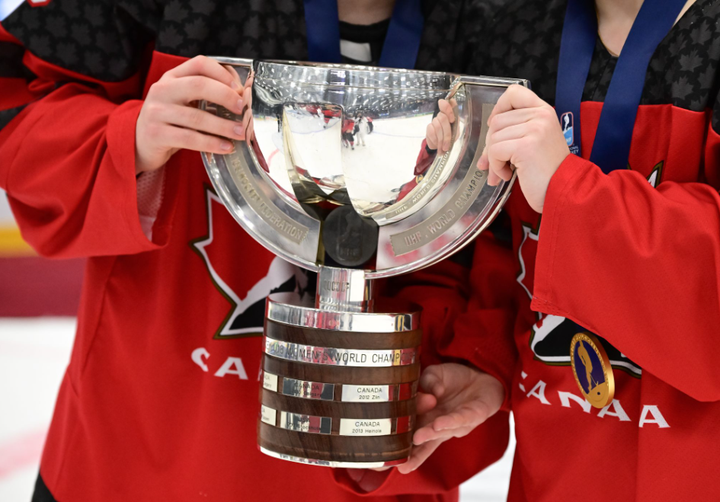Team Korea made a statement in PyeongChang
The Korean team’s success went far beyond scoring two goals.
No one expected the united Korean women’s national team to win a game in the PyeongChang Olympics. The host nation was a heavy underdog even before the drama and controversy of having 12 athletes from the Democratic People’s Republic of Korea stapled onto its roster. Head coach Sarah Murray’s team was ranked 22nd by the IIHF before PyeongChang, and her team faced Switzerland, Sweden, and Japan in Group B; teams ranked 5th, 6th, and 9th by the IIHF.
Korea finished the Olympics with an 0-5-0 record, but there’s a lot more to the story than the host nation failing to win on the greatest stage in sports.
Korea’s first two games were brutal back-to-back 8-0 losses against Switzerland and Sweden. The Koreans were outshot 102 to 27 in those first two games. It was a discouraging start for a team that was hungry to prove that they belonged.
“We’re trying to show people that we deserve to be there, that it wasn’t just a gift that was given to us.” Murray said before the Olympics began. “That we have worked to earn it.”
No matter the score, no matter the odds, no matter the gap in skill, Korea never stopped working. And in their last game of group play, they finally broke through.
Halfway through the second period against Team Japan Randi Griffin, from Apex, N.C., found a way to get a low wrister on net with her team trailing 2-0. The puck had eyes. It pinballed off of Akane Konishi’s right leg pad and slid through her five hole. Really, the “how” of the goal doesn’t matter. What matters is that Griffin’s shot beat Konishi. What matters is that Team Korea scored its first ever Olympic goal.
Korea eventually lost that game 4-1, but they were a different team after Griffin’s goal. They held Switzerland to just two goals on Feb. 18 while also doubling their shot total from their first meeting with the Swiss on Feb. 10. Murray’s team followed that performance by scoring a power-play goal against Sweden.
What Griffin’s goal against Japan lacked in beauty it more than made up for in significance. But there was no denying the beauty of Soojin Han’s power-play goal against the silver medal winning team from Torino. It was downright gorgeous.
Team Korea captain Jongah Park carried the puck behind Sweden’s net and made a fantastic pass to Han, who had crept in from the left point after cycling the puck to her captain. Park’s pass completely deceived Swedish netminder Minatsu Murase and her defenders. It was undoubtedly one of the prettiest goals of the tournament. It also served as an exclamation point and evidence of Korea’s growth as a women’s hockey power.
Perhaps the greatest success story from Team Korea in the PyeongChang Olympics was the play of goaltender Sojung Shin. The former New York Riveter stopped 210 shots; 47 more shots than Finland’s Noora Räty (and Räty played in an extra game). Her country needed her to be special for Korea to prove that it belonged, and she delivered. Shin finished the tournament with an .890 save percentage despite facing an onslaught of 47.96 shots against per 60 minutes. She was absolutely fantastic.
감사합니다 모든분들다요💕Thank you all for supporting the unified Korea team during the Olympics and thank… https://t.co/SikOaDZG9X
— Sojung Shin (@golri31) February 26, 2018
Against almost impossible odds Sarah Murray’s team held its own in games against far more established women’s hockey powers. When the united Korean team stepped off the ice, the sound of a standing ovation filled their ears and hearts. Athletes from both sides of the 38th parallel accomplished something profound and unprecedented with the world watching. Regardless of what happens now off of the ice, nothing can take away what the united Team Korea achieved in PyeongChang.





Comments ()